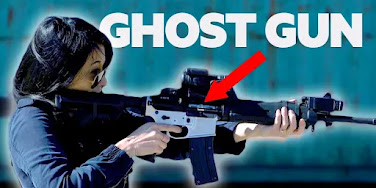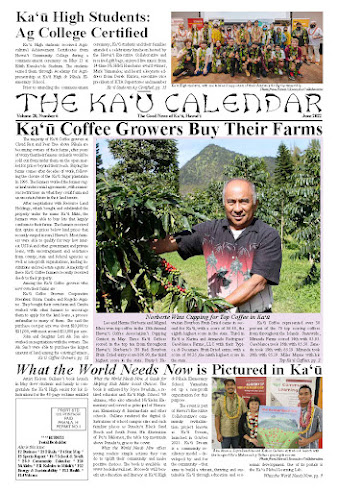WILL MORE SHORT-TERM VACATION RENTALS BE ALLOWED ON AGRICULTURAL LAND? That is the question coming up this Wednesday at a state Land Use Commission meeting with public testimony invited and the session available via zoom.
The meeting follows the LUC appealing a Kona judge's ruling in May. Third Circuit Court Judge Wendy DeWeese granted a petition for some 20 property owners in Waimea, Captain Cook and Kailua-Kona who contend that the state and county can not ban vacation rentals of less than 30 days on their properties. That is despite the requirement, dating back to 1976, that homes in the Agriculture District be used farm dwellings.
The governor said, “In the wake of the tragic mass shootings in Uvalde Texas, Tulsa Oklahoma and in so many other cities across the U.S., and a week after a shooting injured four in Honolulu – it is more important than ever that the State of Hawaiʻi takes action against gun violence. Hawaiʻi has one of the lowest rates of gun violence in America, and this new law is key in helping law enforcement keep our communities safe.”
Among the state’s strict gun laws is one that requires people who buy guns to obtain a license and complete a firearm safety course.
Since Ige took office, Hawaiʻi has enacted new gun safety legislation that includes the Extreme Risk Law, which allows individuals to petition a court to disarm a person in crisis. Another law enacted during the governor’s term alerts law enforcement officials when anyone who is prohibited from owning a firearm, attempts to obtain a gun. And in 2020, Hawaiʻi joined other states in prohibiting ghost guns and the manufacture or purchase of parts for the purpose of assembling a ghost gun.
HELICOPTER FLIGHT OPERATIONS BY HAWAI'I VOLCANOES NATIONAL PARK have been set for June:
June 6 between 9 a.m. to 1 p.m. for sling loads of fence material to the Koa Unit of ʻŌlaʻa, between 3,500- and 4,000-ft. elevation;
June 8 between 7 a.m. and 9 a.m. to support vegetation monitoring between 6,000- and 8000-ft. elevation on Mauna Loa;
June 13 between 6 a.m. and 11 a.m. for Hawaiian petrel monitoring on Mauna Loa between 4,000- and 9,000-ft. elevation;
June 14 between 8 a.m. and 11 a.m. for survey and control of invasive guinea grass in the coastal Keauhou area, between sea level and 3,000-ft. elevation;
In Third Circuit Court in Kona, the state and county argued that vacation rentals are not the legal use of agricultural lands where single family dwellings must be used by those who create income from the properties through agriculture.
See https://luc.hawaii.gov/wp-content/uploads/2022/05/Agenda-for-JUNE-8-2022.pdf to submit testimony and to join the LUC zoom meeting.
The landowners claim that banning vacation rentals is an unconstitutional taking of their property rights, but the judge disagreed. She did agree and that state law fails to define the length of time that renting a dwelling makes it into a vacation rental and ruled that the county can't set a length of time on its own.
According to a story by Nancy Cook-Lauer in West Hawai'i Today on Sunday, "The ultimate ruling will have far-reaching ramifications. Some 1.2 million acres on Hawai'i Island — almost half of the land mass — is classified as agriculture. More than 1,500 of the county’s approximately 4,000 Short Term Vacation Rental applications during the first year of the program in 2019 were for nonconforming use certificates, primarily for agricultural land.
Cook-Lauer wrote: "About 50 owners of property in the agriculture district have appealed the county’s denial of their short-term vacation rental and nonconforming use applications to the county Board of Appeals."
She noted that "those appeals have been on hold while the Rosehill case proceeds through the legal process." The Rosehill case, also called Rosehill petition refers to a leading plaintiff among the owners and trusts that filed the suit to ask for their properties to be approved for Short Term Vacation Rentals.
See https://luc.hawaii.gov/wp-content/uploads/2022/05/Agenda-for-JUNE-8-2022.pdf to submit testimony and to join the LUC zoom meeting.
The landowners claim that banning vacation rentals is an unconstitutional taking of their property rights, but the judge disagreed. She did agree and that state law fails to define the length of time that renting a dwelling makes it into a vacation rental and ruled that the county can't set a length of time on its own.
According to a story by Nancy Cook-Lauer in West Hawai'i Today on Sunday, "The ultimate ruling will have far-reaching ramifications. Some 1.2 million acres on Hawai'i Island — almost half of the land mass — is classified as agriculture. More than 1,500 of the county’s approximately 4,000 Short Term Vacation Rental applications during the first year of the program in 2019 were for nonconforming use certificates, primarily for agricultural land.
Cook-Lauer wrote: "About 50 owners of property in the agriculture district have appealed the county’s denial of their short-term vacation rental and nonconforming use applications to the county Board of Appeals."
 |
| Dr. Johnathan Likeke Scheuer chairs the state Land Use Commission that classifies all Hawai'i land as Conservation, Urban, Rural or Agriculture. |
She noted that "those appeals have been on hold while the Rosehill case proceeds through the legal process." The Rosehill case, also called Rosehill petition refers to a leading plaintiff among the owners and trusts that filed the suit to ask for their properties to be approved for Short Term Vacation Rentals.
The West Hawai''i Today story shows a photo of a 5,000 square foot home on agricultural land in Kailua-Kona renting for $15,000 a month. The owners want to rent it for shorter terms and are among those seeking relief through the courts.
The state Land Use Commission's Hawai'i Island member is Nancy Cabral, who is well known for heading up the Pana'ewa Stampede Rodeo each year and for supporting rodeo in Na'alehu, as well as her Day Lum Rentals, the largest property management business in East Hawai'i.
Chair of the LUC is Dr. Johnathan Likeke Scheuer, a board member of Hawai'i Island Land Trust who lectures at the University of Hawai'i Law School and has worked with the National Park Service, Kamehameha Schools, Department of Hawaiian Home Lands and many others on land use issues throughout the state.
See the names of all the commissioners at https://luc.hawaii.gov/about/state-land-use-commission-members/. Read more about the LUC's role in classifying lands of Hawai'i into the four districts of Conservation, Urban, Agriculture and Rural at https://luc.hawaii.gov/about/state-land-use-districts.
To read comments, add your own, and like this story, see www.facebook.com/kaucalendar/. See latest print edition at www.kaucalendar.com. See upcoming events at https://kaunewsbriefs.blogspot.com/2022/04/upcoming-events-for-kau-and-volcano.htmltml
A NEW LAW REQUIRING INSPECTION OF GHOST GUNS, AS WELL AS GUNS FROM OUT OF STATE AND GUNS TRANSFERRED BETWEEN INDIVIDUALS was signed into law by Gov. David Ige on Friday. A statement from the governor's offices says HB2075 (Act 030) restores part of a previous gun law that was struck down by a federal court last year.
The new law requires the physical, in-person inspection of three categories of firearms that have been identified by county police chiefs as top concerns and threats to public safety. They are: Guns without
The governor said, “In the wake of the tragic mass shootings in Uvalde Texas, Tulsa Oklahoma and in so many other cities across the U.S., and a week after a shooting injured four in Honolulu – it is more important than ever that the State of Hawaiʻi takes action against gun violence. Hawaiʻi has one of the lowest rates of gun violence in America, and this new law is key in helping law enforcement keep our communities safe.”
Among the state’s strict gun laws is one that requires people who buy guns to obtain a license and complete a firearm safety course.
Since Ige took office, Hawaiʻi has enacted new gun safety legislation that includes the Extreme Risk Law, which allows individuals to petition a court to disarm a person in crisis. Another law enacted during the governor’s term alerts law enforcement officials when anyone who is prohibited from owning a firearm, attempts to obtain a gun. And in 2020, Hawaiʻi joined other states in prohibiting ghost guns and the manufacture or purchase of parts for the purpose of assembling a ghost gun.
To read comments, add your own, and like this story, see www.facebook.com/kaucalendar/. See latest print edition at www.kaucalendar.com. See upcoming events at https://kaunewsbriefs.blogspot.com/2022/04/upcoming-events-for-kau-and-volcano.htmltml
 |
| Beautiful but invasive, banana poka invades disturbed lands, like a burned area between 3,000 and 3,500 ft. in elevation on Mauna Loa where surveys and control efforts will be conducted this month. |
June 6 between 9 a.m. to 1 p.m. for sling loads of fence material to the Koa Unit of ʻŌlaʻa, between 3,500- and 4,000-ft. elevation;
June 8 between 7 a.m. and 9 a.m. to support vegetation monitoring between 6,000- and 8000-ft. elevation on Mauna Loa;
June 13 between 6 a.m. and 11 a.m. for Hawaiian petrel monitoring on Mauna Loa between 4,000- and 9,000-ft. elevation;
June 14 between 8 a.m. and 11 a.m. for survey and control of invasive guinea grass in the coastal Keauhou area, between sea level and 3,000-ft. elevation;
June 15 between 6 a.m. between 11 a.m. for Hawaiian petrel monitoring on Mauna Loa, between 4,000- and 9,000-ft elevation. In addition, survey and control of invasive banana poka will occur in the Mauna Loa burn area, between 4,000- and 5,000-ft. elevation;
June 16 between 8 a.m. and 11 a.m. for survey and control of invasive fountain grass from park's west boundary to Keauhou, between sea level and 4000-ft. elevation;
June 23 between 9 a.m. and 10 a.m. for sling loads of fence material to Keanakākoʻi, between 3,000- and 3,500-ft. elevation.
June 30 or July 1, U.S. Geological Survey plans a schedule of low-level helicopter flights that will cover Kīlauea volcano over a three-week period. (Visit the USGS Hawaiian Volcano Observatory website for more information). The USGS may conduct additional flight operations over Kīlauea and Mauna Loa to assess volcanic activity and maintain instrumentation.
A statement from Hawai'i Volcanoes, says, "The park regrets any noise impact to residents and park visitors. Dates and times are subject to change based on aircraft availability and weather. Management of the park requires the use of aircraft to monitor and research volcanic activity, conduct search-and-rescue missions and law enforcement operations, support management of natural and cultural resources, and to maintain backcountry facilities."
June 16 between 8 a.m. and 11 a.m. for survey and control of invasive fountain grass from park's west boundary to Keauhou, between sea level and 4000-ft. elevation;
June 23 between 9 a.m. and 10 a.m. for sling loads of fence material to Keanakākoʻi, between 3,000- and 3,500-ft. elevation.
June 30 or July 1, U.S. Geological Survey plans a schedule of low-level helicopter flights that will cover Kīlauea volcano over a three-week period. (Visit the USGS Hawaiian Volcano Observatory website for more information). The USGS may conduct additional flight operations over Kīlauea and Mauna Loa to assess volcanic activity and maintain instrumentation.
A statement from Hawai'i Volcanoes, says, "The park regrets any noise impact to residents and park visitors. Dates and times are subject to change based on aircraft availability and weather. Management of the park requires the use of aircraft to monitor and research volcanic activity, conduct search-and-rescue missions and law enforcement operations, support management of natural and cultural resources, and to maintain backcountry facilities."
To read comments, add your own, and like this story, see www.facebook.com/kaucalendar/. See latest print edition at www.kaucalendar.com. See upcoming events at https://kaunewsbriefs.blogspot.com/2022/04/upcoming-events-for-kau-and-volcano.htmltml
See The Kaʻū Calendar June Edition at www.kaucalendar.com

.jpg)


